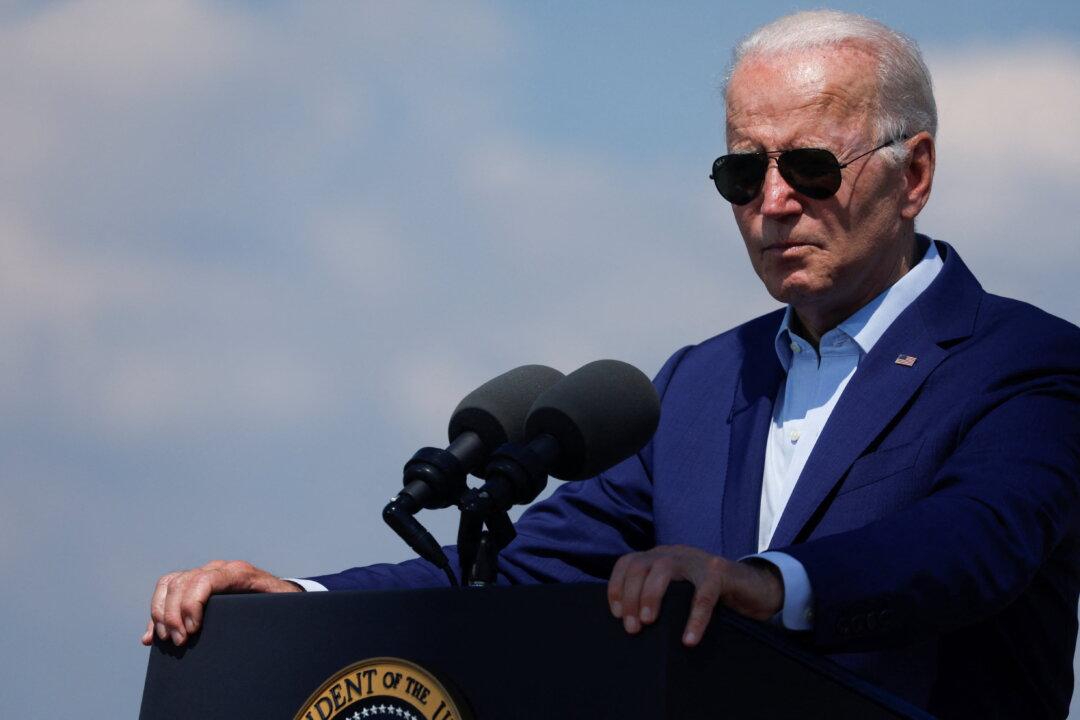President Joe Biden on Thursday responded to a report showing the economy shrank for a second consecutive quarter, which by some definitions, means the United States has technically entered a recession.
The Bureau of Economic Analysis said Thursday that gross domestic product, or GDP, shrunk 0.9 percent at an annualized pace for the second quarter, following a 1.6 percent decline in the first quarter.





